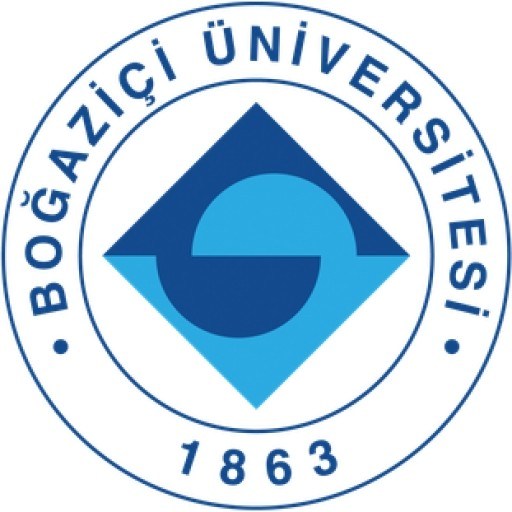Photos of university / #bruneluni
Description
Advertisement
The School of Engineering & Design offers a wide range of research programmes in a stimulating and supportive environment. We have an international reputation for fundamental and applied research in many areas of electronic & computer engineering, mechanical, automative and aerospace engineering; design; advanced manufacturing engineering and management; civil engineering and built environment
Research programmes offered in the School of Engineering & Design include MPhil, PhD and New Route PhD. Applicants for all research programmes will normally be expected to hold a good honours degree in a relevant academic discipline.
For enquiries please contact sed-research@brunel.ac.uk
Contents
Research Stude nts Study Space
The School will provide a dedicated study space for each full-time research student during their period of full-time study. A space will be guaranteed on the basis of acceptable progress, attendance and continued registration on their programme.
Research Student Training
Alongside the Graduate School´s training modules, research students in the School of Engineering & Design are provided with research training within their discipline-areas.
First Year Students
The School provides formal training twice a year to first year students, generally held for a day in October and April. The training includes a mandatory Research Student Induction modulecomprising of research methodologies, health & safety, and library services. Useful information from current research students is included, along with a session on student/supervisor relationship.
2nd & 3rd Year Students
A programme of internal research seminars is provided for 2nd and 3rd years which involves presentations by academic staff, external visitors and present students. Details of all research seminars are advertised on the School´s website.
During second and third years students will be encouraged to present in-house seminars on their research progress, before attending any conference.
Research Stude nt confere nce attendance
The School has introduced a programme and can provide some financial support to students presenting papers at conferences. Students who are fully enrolled (not in `Continuation´), and in their 2nd or 3rd year of study, will be eligible to apply for funding, once only during their registration period.
The School also organises an internal conference where research students are invited to present oral and poster presentations. This has now become an annual event in the School calendar.
Requirements
Applicants with a UK first or second class honours degree or a Master's degree (or a recognised equivalent from an overseas university) may be registered for a PhD. An appropriate level of English language competence is also expected. An applicant with certain alternative qualifications may be registered for the degree of PhD "subject to confirmation". Candidates not meeting the normal entrance requirements above may be considered for registration for the degree of MPhil. It is quite common for students to be registered initially for an MPhil and to then have their status as a PhD student confirmed after successful completion of the first year.
The Senate reserves the right to assess the eligibility of applicants on an individual basis.
English Language Requirements
IELTS band: 6 TOEFL paper-based test score : 550 TOEFL iBT® test: 79
IMPORTANT NOTE: Since April 2014 the ETS tests (including TOEFL and TOEIC) are no longer accepted for Tier 4 visa applications to the United Kingdom. The university might still accept these tests to admit you to the university, but if you require a Tier 4 visa to enter the UK and begin your degree programme, these tests will not be sufficient to obtain your Visa.
The IELTS test is most widely accepted by universities and is also accepted for Tier 4 visas to the UK- learn more.
Funding
Isambard Research Scholarships
Award: Fees (home/EU) plus at least £13,290* per year maintenance grant and £1000 per year research training grant
Duration: Maximum three years of full-time study
Number available: 15
Closing date: 30 June 2010
Eligibility: Open to home/EU applicants for full-time PhD programmes starting on or after 1 October 2010
(*the maintenance award will be set at the national stipend level agreed by the UK Research Councils which is yet to be announced for the forthcoming year)
Academic prizes
Brunel prizes are awarded to research students only during, or at the end of, your programme of study, for exceptional academic performance. More information will be made available once you start at Brunel.
The Vice-Chancellor's Prizes for Doctoral Research
Five prizes of £500 each are awarded on the basis of research excellence.
The Vice-Chancellor's Travel Prizes
25 awards of £500 are made to allow outstanding research students to travel to conferences abroad.
The Vice-Chancellor's Research Poster Prizes
£500 is awarded for the five best posters at an annual conference.
School Conference Prizes
The Graduate School supports student conferences around the University to award student prizes.
Doctoral research scholarships and studentships
Research scholarships may be available across the full range of our research activity. Please note that award numbers and amounts vary each year and in each School, and only a very small number - or none at all - may be available for your programme. Check the web pages for your School or Research Institute for details and eligibility information.
PhD studentships may consist of a cash scholarship, payment of your tuition fees, a wage for teaching or a combination of the three. For vacancies and details of eligibility and how to apply, see Job vacancies or check the web pages for your School or Research Institute.
* The School of Engineering and Design are pleased to announce that the Thomas Gerald Gray Charitable Trust will fund a further five PhD students from 1st October 2010.
The Brunel International Scholarship
The Brunel International Scholarship is an annual award scheme designed to promote talent and encourage excellence in scholars coming to Brunel from around the globe. For 2010/11, 35 awards of either £3,000 or £2,000 are available to both undergraduate and postgraduate students who have been offered a place on a full-time course at Brunel.
All applications must be submitted online before 26 May 2010. For full details, see the International Scholarship web pages.
Bursaries
Bursaries may be available from your School, and your course director once you have secured and accepted a place on a course for information on any funding opportunities.
* A limited number of part-scholarships of £1,500 are available for the MA programmes in Music and Drama. Details will be sent to candidates who have confirmed their intention to study at Brunel in the 2010/11 academic year.
* The Leaders of Tomorrow PhD Bursary in Human Centred Design is supported by a donation from Brunel graduate and philanthropist Peter Ilori. The bursary provides £5,000 of financial support towards the study fees of high-achieving graduates who wish to pursue a PhD in Human Centred Design. Selection is based on the quality of applicants´ PhD study proposal.
External funding
#mainbody { font-family: Verdana,Arial,Helvetica,sans-serif; margin-top: 10px; width: 810px; }#left { margin: 0pt; padding: 0pt; width: 510px; height: auto; float: left; clear: both; }#left h2 { border-bottom: 1px solid rgb(102, 153, 255); padding: 0px; font-family: Georgia,"Times New Roman",Times,serif; font-size: 105%; width: 500px; margin-top: 15px; margin-bottom: 15px; color: rgb(0, 51, 153); }#left p { padding: 0pt; width: 500px; margin-top: 5px; margin-bottom: 5px; }#right { margin: 0pt; padding: 0pt; width: 290px; height: 180px; float: left; }#right h3 { margin: 0pt; padding: 0pt; font-family: Georgia,"Times New Roman",Times,serif; font-weight: bold; }#pagelinks { border: thick solid rgb(153, 102, 0); padding: 9px; height: 310px; color: rgb(153, 102, 0); margin-top: 0pt; margin-left: 7px; margin-bottom: 15px; background-image: url(/0/Corporate%20Images/PGFinance09/Campus.jpg); background-repeat: no-repeat; }#pagelinks p { margin: 0pt; padding: 0pt; }#pagelinks h3 { padding: 0pt; font-family: Georgia,"Times New Roman",Times,serif; color: rgb(153, 102, 0); font-size: 105%; margin-bottom: 7px; position: relative; top: 180px; }#pagelinks ul { margin: 0px; list-style-type: disc; padding-left: 15px; padding-bottom: 4px; position: relative; top: 180px; }#pagelinks li { margin: 0px; padding: 0pt; }#pagelinks a { margin: 0pt; padding: 0pt; color: rgb(0, 0, 0); text-decoration: none; }#pagelinks a:hover { margin: 0pt; padding: 0pt; color: rgb(0, 0, 0); text-decoration: underline; }#brunellinks { padding: 9px 9px 9px 13px; height: 124px; background-color: rgb(51, 0, 51); color: rgb(255, 255, 255); margin-left: 7px; }#brunellinks a { color: rgb(255, 255, 255); text-decoration: none; }#brunellinks a:hover { text-decoration: underline; }#brunellinks ul { margin: 0px; list-style-type: square; padding-left: 15px; padding-bottom: 4px; }#brunellinks h3 { padding: 0px; font-family: Georgia,"Times New Roman",Times,serif; margin-bottom: 7px; font-weight: bold; }#externallinks { padding: 9px 9px 9px 13px; height: 123px; background-color: rgb(102, 51, 102); color: rgb(255, 255, 255); margin-left: 7px; }#externallinks a { color: rgb(255, 255, 255); text-decoration: none; }#externallinks a:hover { text-decoration: underline; }#externallinks ul { margin: 0px; list-style-type: square; padding-left: 15px; padding-bottom: 4px; }#externallinks h3 { padding: 0px; font-family: Georgia,"Times New Roman",Times,serif; margin-bottom: 7px; font-weight: bold; }#otherlinks { padding: 9px 9px 9px 13px; height: 93px; background-color: rgb(153, 102, 153); color: rgb(255, 255, 255); margin-left: 7px; }#otherlinks a { color: rgb(255, 255, 255); text-decoration: none; }#otherlinks a:hover { text-decoration: underline; }#otherlinks ul { margin: 0px; list-style-type: square; padding-left: 15px; padding-bottom: 4px; }#otherlinks h3 { padding: 0px; font-family: Georgia,"Times New Roman",Times,serif; margin-bottom: 7px; font-weight: bold; }#homelinks { padding: 9px 9px 9px 13px; height: 38px; background-color: rgb(204, 153, 204); color: rgb(0, 0, 0); margin-left: 7px; }#homelinks a { color: rgb(0, 0, 0); text-decoration: none; font-weight: bold; }#homelinks a:hover { text-decoration: underline; }#homelinks ul { margin: 0px; list-style-type: disc; padding-left: 15px; padding-bottom: 4px; }#homelinks h3 { padding: 0px; font-family: Georgia,"Times New Roman",Times,serif; margin-bottom: 7px; font-weight: bold; }
Government Research Councils
There are currently seven grant-awarding Research Councils. You can find out about them through Research Councils UK.
The Research Councils provide a variety of awards at both Master's and Doctoral level, although the number available each year to each School of the University is very small indeed.
To be eligible you must be an EU national and must hold or expect to receive a first or upper second-class honours degree from a UK higher education institution.
State funding
There is limited state funding for postgraduates.
Some funding is available for teacher training in England and Wales.
If you are training to work in social work or certain areas of healthcare, you may be able to get an NHS bursary.
Charities, trusts and foundations
Many charities, foundations and trusts award funding for postgraduate study - you can find lists on the Prospects website and through
Some awards are dedicated to a particular cause while others have very general eligibility criteria. Most do not cover both tuition fees and living costs, and many amount to just a few hundred pounds a year.
Sponsorship and employer-funded study
Your employer may sponsor a postgraduate course if the qualification will improve your ability to do your job. You may have to sign an agreement tying you to the company for a specified period.
Some PhD studentships are sponsored by employers who have an involvement with the research you intend to undertake.
You may also wish to apply for a Knowledge Transfer Partnership (KTP). KTP projects usually last for two years, and involve a partnership between a commercial company and a university. Graduates work on projects central to the company´s development whilst continuing to train.










